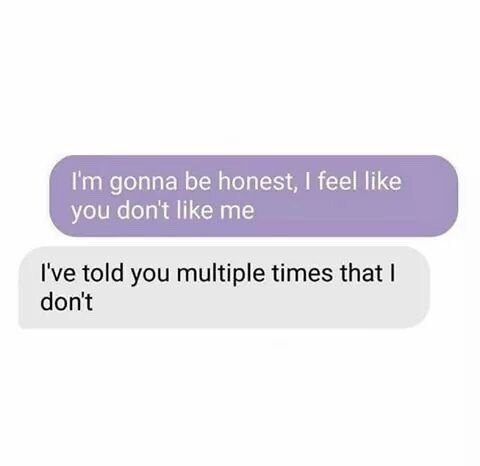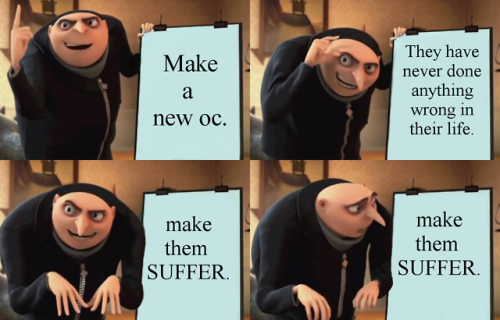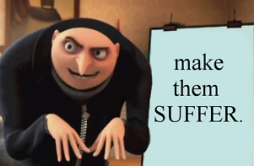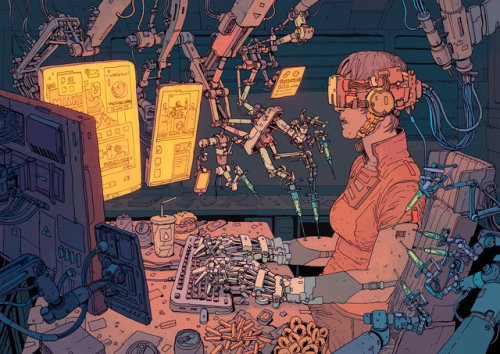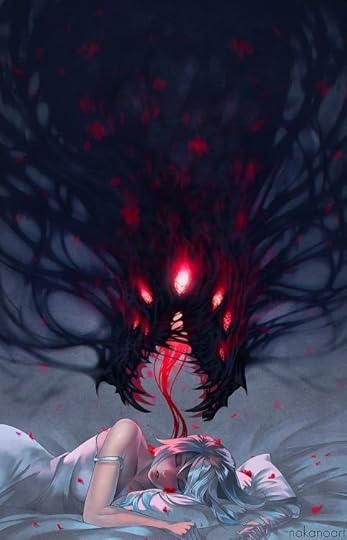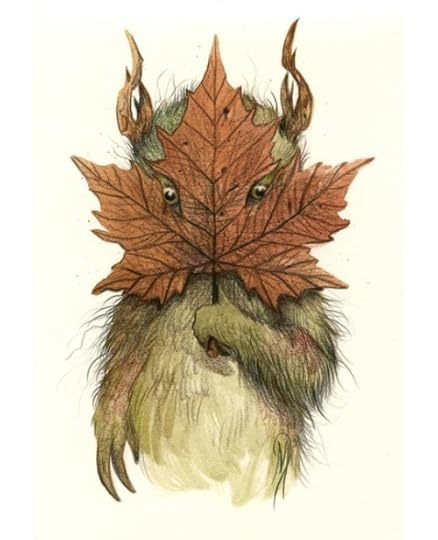Katherine Frances's Blog, page 54
April 1, 2018
writers-are-writers:
Prompt #911“This doesn’t seem right.”“We kill people. When has anything we’ve...
Prompt #911“This doesn’t seem right.”
“We kill people. When has anything we’ve done ever seemed right?”
March 31, 2018
Okay, I went back at it and edited 1865 words and wrote another 1549. As far as writing word count...

Okay, I went back at it and edited 1865 words and wrote another 1549. As far as writing word count goes this was a pretty average day for me, but I definitely got a lot of editing done on top of that, so I’m happy with it.
“I suppose you are the first to come through the mirror in a long time.”
“How do others end up here?” Ari asked, hoping that this was a different enough question that it might suit her fancy to answer.
The question yielded a sharp-eyed glair and a toothy smile from the creature. Upon a close look, Ari could see that she had four, two on either side of her two front teeth, long and dagger sharp-looking fangs.
“They’re taken, of course,” she said sinuously.
spazzikat:
dr-n-tropy:
Add this panel one more time and this...
Today I edited 8,655 words of my yet to be announced WIP, may revisit and do some more, we’ll...

Today I edited 8,655 words of my yet to be announced WIP, may revisit and do some more, we’ll see.
“You’ve never kissed a girl before, have you?”
Kelsey grimaced. “That obvious?”
There’s a lovely sapphic quote for you.
Convo Question for my followers:
When you first sit down to edit, do you go strait for grammar, or do you tend to edit for content first?
–[x]
honestlydeepesttidalwave:source:
Gisy
k-frances:–Visceral Definitions by k-frances
thefaeryhost:Dan May __ Autumn Mask
March 30, 2018
firewritten:
I’m seeing stuff about character flaws on my dash again, and yeah, I’m still trying to...
I’m seeing stuff about character flaws on my dash again, and yeah, I’m still trying to wrap my brain around that concept and what I think and feel about it.
I know that my view of it is majorly influenced by my experiences and how those experiences shaped my brain. I’ve spent years fixing that and rewiring my brain so that it doesn’t tell me I’m horribly flawed quite as much as it used to.
But the experiences that created that neural wiring have also left me with a deep suspicion of anyone who sets out to judge other living beings and to declare parts of other people as faulty and wrong and bad, so these lists of what is a flaw and what’s not make me nervous.
I get that it seems to be meant as a good thing, that you want your characters to have flaws, and that those posts I see being reblogged around about character flaws are not at all meant to be highly critical and judgemental and fault-finding and shaming towards the characters.
But still, I wonder - who decides what’s a flaw and what’s not? Where do they get the authority to make that judgement? Why do they feel so sure that their judgement is right and correct and just?
I also see a lot of talk about complex and real characters around the idea of flaws.
I like to think that Seth is complex and real. I’ve gotten comments to that effect through the years from readers. But when I made him, I didn’t make a list of parts of him that I consider wrong and bad. I just write him as he is. I don’t feel it necessary to judge him.
I get the same uneasiness about the concept of “likability” but I guess that’s another post.
I don’t know. When I see descriptions of what’s considered a “perfect” character who doesn’t have enough flaws, it feels very foreign. Which I guess is why my concept of flaws doesn’t match with the general concept I’ve seen on here, because maybe I’m not reading the same books or watching the same movies or shows that a lot of people are, and also I don’t think I ever absorbed the same idea of “perfect”.
Honestly my idea of “perfect” is “someone who knows how to be human good enough to not get yelled at or hit or stalked or ostracized or threatened, who knows how to not make other humans mad.” From what I’ve been able to pick up from those posts about “perfect” characters, other people use that word to mean something like “This character has traits that are considered to be desirable by my culture and also everything works out well for them.” Does that sound right?
So, based on that, maybe the general writeblr consensus about the word flaw is something like “This character has some traits that are not considered desirable by my culture and not everything works out for them?” And maybe people like this and want to read about it because it’s like a relief from the pressure they feel from their culture to have the traits that it considers desirable and to achieve the inhuman perfection that their culture values? And then they don’t like the stories with the “perfect” characters because those reinforce that cultural pressure?
I don’t know. I don’t know anything. That’s why I ask so many questions.
I totally understand where you’re coming from, and I think you’re asking some great questions that all writers should be asking themselves.
The way I think of it is this; if a trait causes a character difficulty within your plot (or even within their backstory, but better if its in the actual plot) then it is considered a character flaw. Simple as that! Now, that doesn’t mean that all flaws are only flaws. In fact, I would venture to say that most traits are not ever only good or only bad.
(Some could be mostly one or the other… like someone who just so happens to enjoy murdering babies. Probably never going to be a good guy trait). But most traits can be either depending on the situations.
Ex: Anna is a great student and works really hard in school. Anna gets all As, but her focus starts to slip when she falls in love with the person of her dreams. Her and this person will probably have a long and prosperous relationship. Unfortunately, Anna cannot let herself divide her time from school because she prides herself so much on perfect grades. So this person begins to think Anna doesn’t really like them and moves on. Heart break issues for Anna.
So, in the example, Anna has what most people would consider a great trait; a high work ethic and focus in school. And maybe in 20 years when she’s happily married to someone else she met later one in life, she’ll retell the story as a success story, because she persevered and focused on only her grades and was super successful because of it. But at the time (aka in the scope of the story) her extreme focus on school is a negative trait because the conflict is driven by it and the trait is causing her heart break.
What most people consider a good trait, is usually just a trait that would be good to have most of the time, but that can be a really close margin, like the example I gave. What most people consider a ‘too perfect’ character, is actually just a character who’s traits never cause them issue. No matter what kind of person you are, and what traits you have, your personality is going to cause you some kind of strife in your life, so it feels unrealistic when someone just floats through life with no issues that are caused by them.
Ex: The Hero’s only problem is that the Bad Guys keep trying to kill them. Everyone loves the Hero, they are hansom, charming, smart, and of course heroic and if the Bad Guys would just leave them alone, then the Hero would have a perfect life. –Pretty lame, and unrealistic–
TLDR: Well rounded characters don’t have ‘good’ traits and ‘bad’ traits, in my opinion. They have traits that are put into situations that create conflict due to said personality, and also put into situations that solve conflict due to said personality.
I hope this helped and gave some people another way of thinking of this! Again, just my thoughts, and ultimatly it’s a bit more complicated than this even. Maybe I’ll do a post about this eventually!

